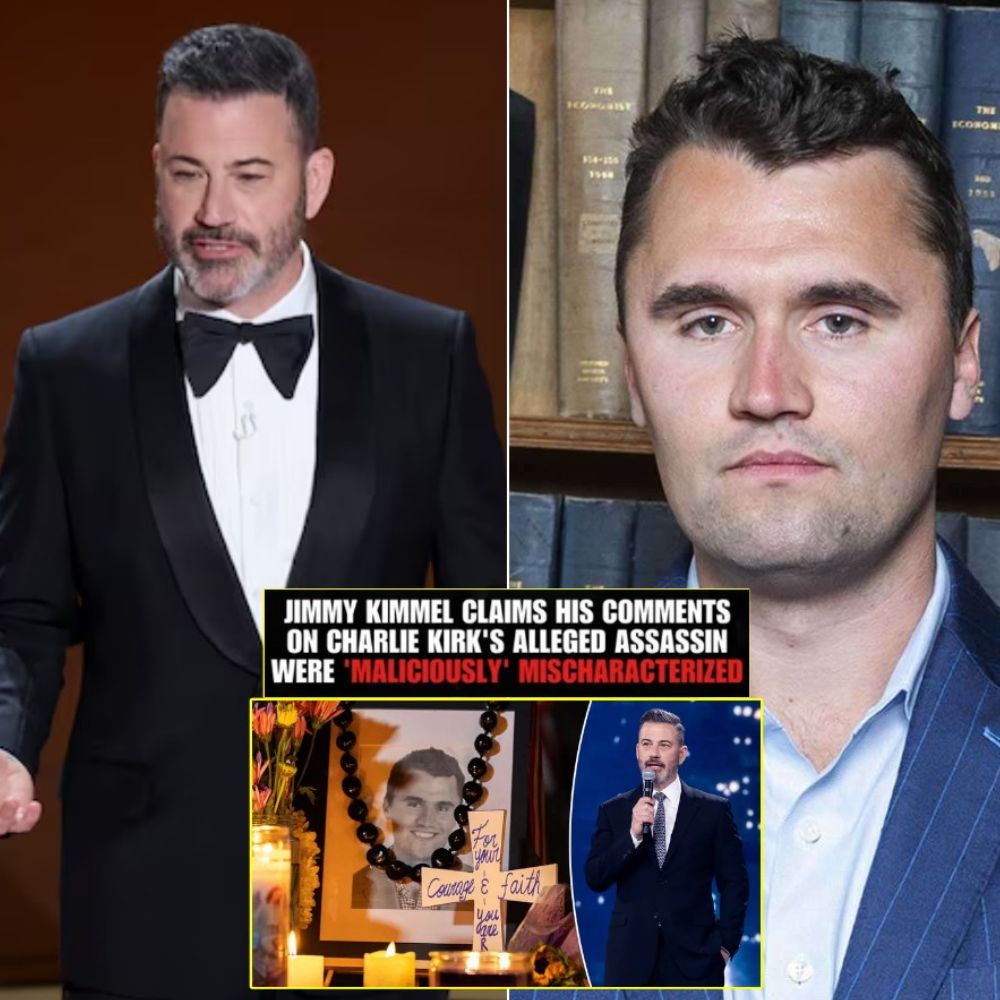“YOU TWISTED MY WORDS!” — Jimmy Kimmel STRIKES BACK After His Show Was Yanked Off-Air Over Charlie Kirk Remarks, Accusing Conservatives of DELIBERATELY Misrepresenting His Words About the Assassination Controversy! The Late-Night Host’s Furious Clapback Sparks National Firestorm!

Jimmy Kimmel Speaks Out After Suspension: “My Comments Were Maliciously Mischaracterized”
Late-night host Jimmy Kimmel is no stranger to controversy, but his recent suspension following remarks about conservative activist Charlie Kirk’s death has thrust him into the center of a heated debate about free speech and media distortion in America.
At the annual Bloomberg Screentime event on Wednesday, Kimmel sat down with Bloomberg’s Lucas Shaw to discuss the fallout. The conversation came after Kimmel was briefly suspended for suggesting—incorrectly—that Kirk’s suspected shooter was a MAGA supporter. The incident quickly snowballed, with conservative news outlets seizing on his comments and, according to Kimmel, intentionally twisting his words.
“I didn’t think there was a big problem at first,” Kimmel admitted. “I just saw it as distortion from some right-wing media networks, and I wanted to set the record straight.”
But as the story gained traction, Kimmel realized the situation was more serious than he initially thought. “When they pulled the show off the air, that’s when I knew this was an actual problem,” he said.
The days following his suspension were a time of reflection and dialogue. Kimmel said he had productive conversations with network leadership, which helped him understand their perspectives. “I can be reactionary, I can be aggressive, I can be unpleasant sometimes,” he confessed. “Having those days to think it over was actually helpful.”
When asked if he felt his comments were mischaracterized, Kimmel was unequivocal. “I didn’t ‘feel’ like it. It was,” he declared. “It was intentionally, and I think maliciously, mischaracterized.”
Kimmel expressed concern not just for himself, but for his colleagues at Disney. “What happened over the last three weeks was very unfair to my bosses. No one should ever be put in a position like this. It’s insane,” he said. “I hope this draws a bold red line for Americans about what we will and won’t accept.”
Upon returning to the airwaves, Kimmel addressed viewers directly, apologizing for any pain his words may have caused. “I want to make something clear, because it’s important to me as a human: it was never my intention to make light of the murder of a young man,” he said emotionally. “Nor was it my intention to blame any specific group for the actions. It was a deeply disturbed individual. That was the opposite of the point I was trying to make.”
Kimmel acknowledged that, to some, his comments may have seemed ill-timed or unclear. “For those who think I pointed a finger, I get why you’re upset. If the situation was reversed, there’s a good chance I’d feel the same way.”
As the dust settles, Kimmel’s ordeal highlights the challenges public figures face in today’s polarized media landscape—and the importance of thoughtful dialogue in the face of misunderstanding.